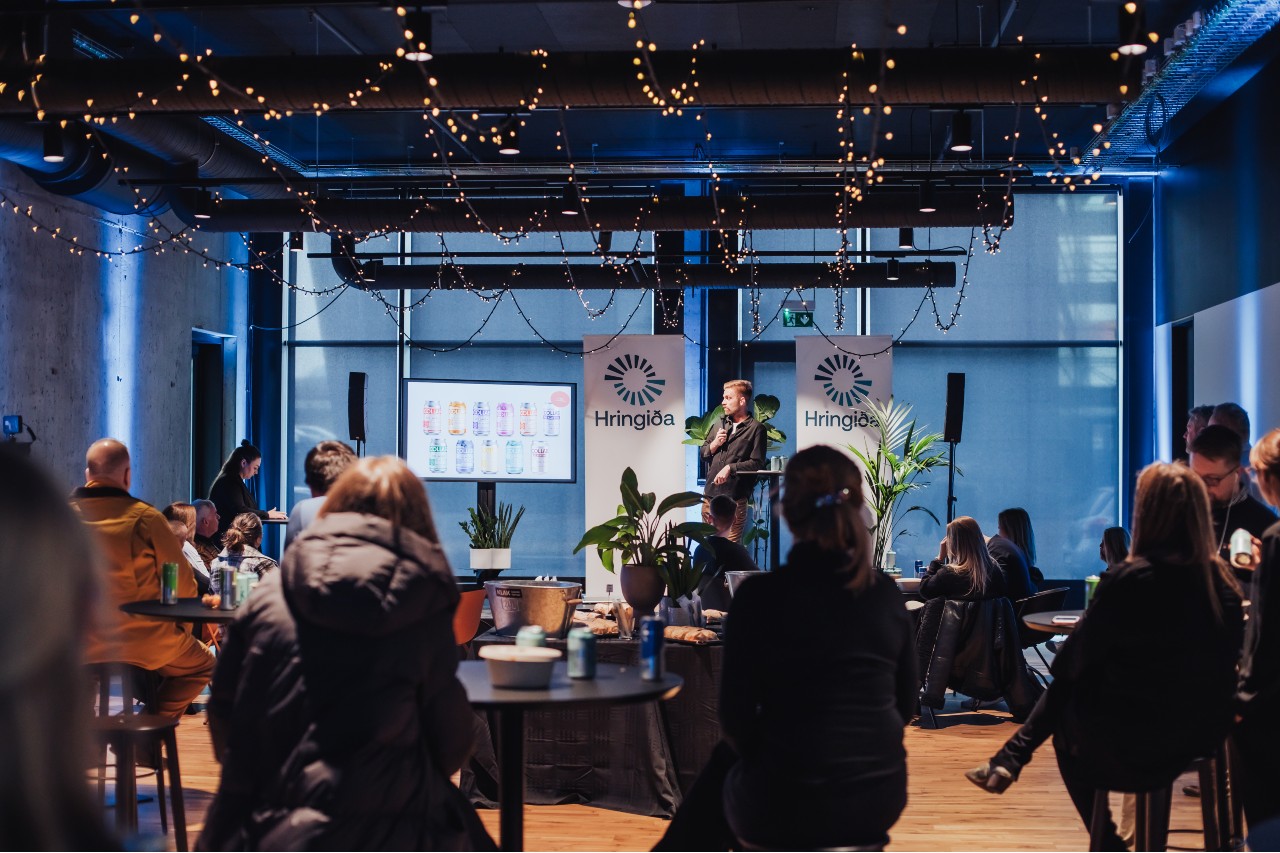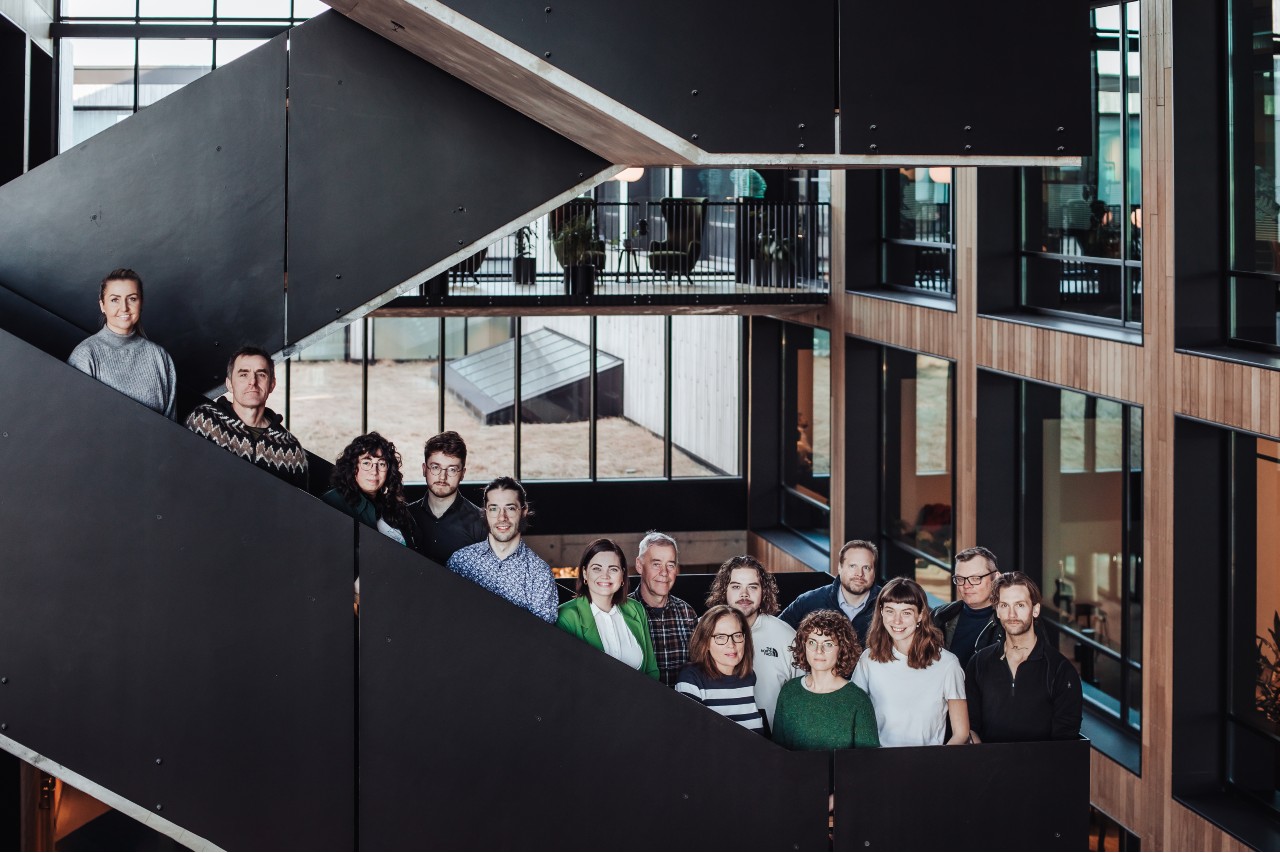7 Icelandic companies were selected for the Icelandic business accelerator, Hringiða. With this, Icelandic startup ecosystem supporter KLAK sets the ambition for circular economy and the green transition.
Spotted by: Signe Lyngholm Lindbjerg

On 14 March 2023, Hringiða kicked off for the very first time. The 7 selected companies are thus already in full swing with their acceleration journeys.
Hringiða runs over 8 weeks, and the activities in the programme include mentoring, organised meetings with experienced entrepreneurs, investors, and other experts, and workshops with various topics such as effective teamwork, entry into foreign markets, and investor presentation training.
The themes of the accelerator are structured with the aim of preparing participants to apply to larger European funds and make them ready for investments.
A green Icelandic startup ecosystem
The circular economy and the startup ecosystem have been some of the main focuses in the startup scene in Iceland for some years now and has been thriving and growing steadily in parallel but in relatively limited areas.
Startups in Iceland are catching on fast in terms of climate change mitigation and are quite successful in research and awareness, with some fast-growing startups within the maritime- and coastal ecosystem in Iceland and around the world, as the support system surrounding the maritime industry in Iceland has been one of the highly praised cornerstones in the society for years.
The ecosystem is constantly growing, and clusters have sprung up all over the country to bring together parties to obtain international cooperation for experiments, research, and the development of energy and climate-friendly solutions.
Facts about climate change and The Arctic
It is no secret that the Arctic is particularly vulnerable when it comes to climate change. The latest IPCC report demonstrates that across many factors such as sea rise, temperature rise, biodiversity, and damages to nature and people, the Arctic has been and continues to be disproportionally affected by the impacts of climate change.
Therefore, it is extremely important for both businesses, policy makers, and civil society actors all over the world to contribute to climate change mitigation and the green transition.
With this programme, KLAK and the Icelandic startup ecosystem are thus making a positive contribution and presents as a role model right at a place where climate change is truly felt.
A green Icelandic startup ecosystem
The circular economy and the startup ecosystem have been some of the main focuses in the startup scene in Iceland for some years now and has been thriving and growing steadily in parallel but in relatively limited areas.
Startups in Iceland are catching on fast in terms of climate change mitigation and are quite successful in research and awareness, with some fast-growing startups within the maritime- and coastal ecosystem in Iceland and around the world, as the support system surrounding the maritime industry in Iceland has been one of the highly praised cornerstones in the society for years.
The ecosystem is constantly growing, and clusters have sprung up all over the country to bring together parties to obtain international cooperation for experiments, research, and the development of energy and climate-friendly solutions.

Participating start-ups
The requirements for being considered for Hringiða were that the companies had to be working on solutions in the field of circular economy or other green transitions, and that they had to at least be on TRL (Technonology Readiness Level) 4 or higher, meaning having a prototype that has been tested.
In the selection of the companies, the steering group of the programme looked for companies with a compelling solution, a strong team with a comprehensive knowledge to solve the challenges they might face, and companies that had received funding from national funds and with a readiness to seek funding and/or partnerships in Europe.
Facts about Hringiða
Hringiða is run by KLAK, which is a non-profit organisation owned by the University of Iceland, Reykjavik University, Origo, The New Business Venture Fund, and the Federation of Icelandic Industries.
The role of KLAK is to expand and support the community of entrepreneurs in Iceland with the aim of increasing the number of start-up companies.
Facts about the programme
KLAK coordinates the programme, while several sponsors contribute with capital but also knowledge sharing and experience within the circular economy. The sponsors are the Ministry of Environment, Energy and Climate, The City of Reykjavík, Reykjavík Energy, SI – the Federation of Icelandic Industries, Terra, Faxaflóahafnir and Ölgerðin.
Representatives of the sponsors form a steering group that takes part in forming the accelerator and selecting the participants. The accelerator also includes partners, who participate in the steering group and bring in knowledge that they pass on to the participants through workshops and lectures.
The 7 selected companies are:
Alor was founded in 2020 to develop, manufacture and market environmentally friendly aluminium batteries and energy storage. The innovation consists in aiming to produce aluminium batteries of different sizes, i.e., from small batteries and accumulators to large energy storage in container sizes.
Bambahús are greenhouses that contribute to the strengthening of the circular economy, reusing liquid packaging that would otherwise be exported and landfilled. The houses are light, sturdy, durable, and specially designed with the Icelandic climate in mind.
Mar Eco is an innovative company in fishing equipment for the commercial fishing industry, focusing on environmental solutions for sustainable fishing. Traditional trawl doors are mainly used for fishing where the fishing gear is towed “off the seabed” to avoid direct impact to the bottom to protect fragile habitats.
Melta offers recirculation services and the production of organic fertilizers from bio-waste in rural and municipal areas. Melta is designed with comfort and quality in the first place to make it easier for residents, municipalities, and growers to use the resource that falls in all of our homes.
Munasafn RVK Tool Library is a self-checkout library-of-things hardware and software system, which allows local libraries to offer their members access to electronics. Hringrásarsafnið helps Iceland reduce its e-waste numbers, offer communities access over ownership, increase foot traffic at libraries, increase membership rates, and reduce CO2 emissions from imports.
Orb is a software solution for service providers of carbon forestry projects (project developers). The end user is a landowner who himself measures a few fields in his forest according to instructions, and the back end runs the information with satellite images to estimate the total volume of the forest. Automated reporting makes it easy to get international certification.
Resea Energy plans to produce a significant amount of biofuels from cultivated seaweed to be used for shipping and aviation. Several other high value biomaterial products will also be produced alongside fuel in an integrated biorefinery.

